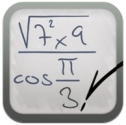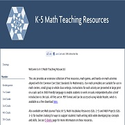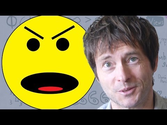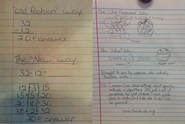-
About
- About Listly
- Community & Support
- Howto
- Chrome Extension
- Bookmarklet
- WordPress Plugin
- Listly Premium
- Privacy
- Terms
- DMCA Copyright
- © 2010-2024 Boomy Labs

 Ken Peterson
Ken Peterson
Listly by Ken Peterson

Creating new learning environments in math by applying UDL principles may just close the achievement gap in the US! [Page 1]

Free math teaching resources, math games, center activities and math journal tasks for K-5 aligned with the Common Core State Standards for Mathematics.

The "Magical Maths" website is a FREE, fun and friendly site that was set up in early 2007 to act as a learning hub for teachers around the world. The site receives thousands of unique visits per day, and has developed into a site where teachers of all subjects share FREE resources to aid the development of OUTSTANDING teaching pedagogy.

Education researchers are beginning to validate what many teachers have long known - connecting learning to student interests helps the information stick. This seems to work particularly well with math, a subject many students say they dislike because they can't see its relevance to their lives.

Laura Candler's Math Problem Solving Resources Laura Candler's Math Problem Solving page is where you'll find great resources for teaching problem solving as well as a variety of math problem activity pages. Many of the items on this page are free and do not come with directions.

Traditionally one of the loathsome subjects, math is often a stumbling block for students. Curriki's Project-Based Learning (PBL) Geometry curriculum will help your students build the skills and confidence that will help them conquer any mathematical problem and develop 21st century skills such as communication, collaboration, and teamwork.

Middle school math teacher Audra McPhillips makes hint cards with questions to guide her students when they are struggling with a problem.

Why Use Technology in the Classroom? Technology, when used appropriately, can help make science classroom a site of active learning and critical thinking, furthering student inquiry and connections with the materials. Teachers can use technology to enable students to explore fundamental curriculum issues and answer core questions.

Singapore teaches maths better than most countries including the UK, according to international rankings for secondary pupils. The difference starts at an early age. There are many reasons but one key factor is its step-by-step approach that can be used at home or in the classroom.

Here's a plethora of math web resources sure to provide some assistance to math teachers trying to get your arms around Common Core, engaging lessons, new ways to teach, better plans, and so on. Thinking a little ahead, it's tax time! The National Library of Virtual Manipulatives - alas, does NOT work on Chromebooks...

As Edward Frenkel sees it, the way we teach math in schools today is about as exciting as watching paint dry. So it's not surprising that when he brings up the fact that he's a mathematician at dinner parties, eyes quickly glaze over. "Most people, unfortunately, have a very bad experience with mathematics," Frenkel says.

IN Mikhail Bulgakov's novel "The Master and Margarita," the protagonist, a writer, burns a manuscript in a moment of despair, only to find out later from the Devil that "manuscripts don't burn." While you might appreciate this romantic sentiment, there is of course no reason to think that it is true.

With thanks to http://www.audible.com/numberphile Featuring Professor Edward Frenkel, from the University of California, Berkeley. Author of Love & Math.

The quality of teacher training will be crucial to the success of the new Common Core State Standards in math, educators say, and the pressure is on districts to give elementary school teachers the skills they'll need to provide students with a firm foundation in early arithmetic.

My favorite way to teach place value is definitely using place value tent cards. It is always one of the highlights of math class as well, as it makes learning place value a kinesthetic activity that all students enjoy. The tent cards that I have include numbers up to 90 000.

Over the past week, I've seen this image multiple times on Facebook and elsewhere, a supposed denunciation of the Common Core version of math that kids are now learning: That picture is especially popular on conservatives' Facebook walls ... and I'm sure one of your relatives has said something about it, too.

The brief reviews multiple Consortium studies of more than 150,000 students who attended Chicago high schools between 1994 and 2003. The authors conclude that, for lower-achieving students, tracking or ability grouping in 9th grade algebra was associated with higher grades and lower test scores than was heterogeneous grouping or detracking. For higher-achieving students, the opposite was true. So should schools track? Should they detrack? It's hard to say without first understanding the context of the study.
A great way to capture the attention of your students is to introduce these virtual tools. If they are bored with traditional flashcards, post-its or math manipulatives, try out one of the virtual tools on our list:
